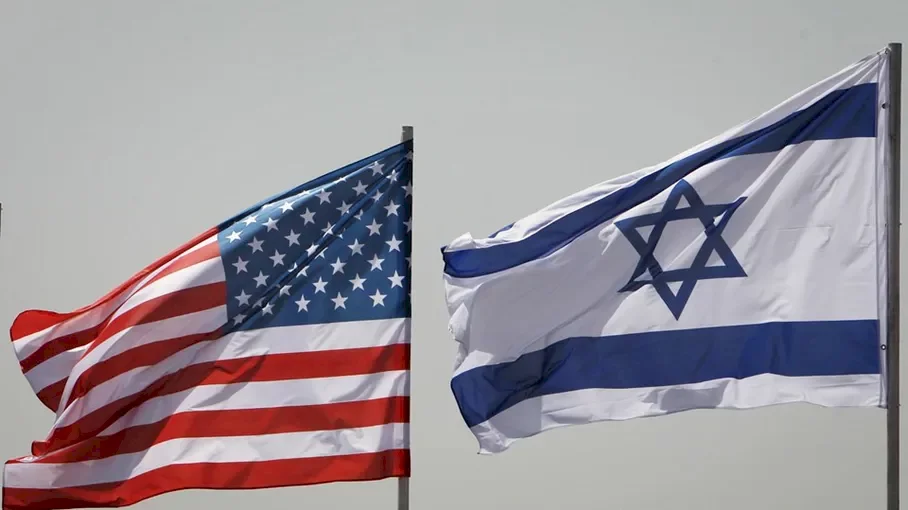
Experts: Washington Will Regret What Israel Has Done in the Middle East
SadaNews - Two Chatham House experts stated that Middle Eastern countries increasingly view "Israel" as a new common threat, and Washington's unwavering support for this country undermines its standing in the region and may have already prompted some Arab countries to reassess their alliances and security strategies.
The experts, Galip Dalay, a senior research fellow at Chatham House and coordinator of the Contemporary Turkey Program at the University of Oxford, and Sinan Akil, director of the Middle East and North Africa Program at the same institute, noted in an article for Foreign Affairs that Israel's ongoing war on Gaza and its expansionist military doctrine have caused a radical shift in the geopolitical landscape of the Middle East.
They pointed out that "Israel," which some Arab countries once considered a possible security partner against Iran, is increasingly viewed as a destabilizing force. Instead of isolating Iran and its proxies— as Israeli and American policy aims— Israel's behavior has repelled key Arab countries, including Gulf states that were previously open to normalization under the Abraham Accords.
The experts observed that the new peace plan announced by US President Donald Trump and Israeli Prime Minister Benjamin Netanyahu lacks regional support and is considered unfeasible as long as Israel continues its aggressive actions and refuses to meet Palestinian demands.
They concluded that normalization with Israel has become politically toxic throughout the Arab world, as recent opinion polls show a sharp decline in popular support for relations with Israel. They cited an example of this decline from 31% support in Morocco in 2022 to only 13% after the onset of the Gaza war in 2023.
As for Egypt, Israel's old peace partner, it has significantly downgraded its relationship with Israel following the military campaign on Gaza. Egyptian President Abdel Fattah el-Sisi even referred to Israel as an "enemy," marking a departure from decades of diplomatic caution. Moreover, Cairo has strengthened its cooperation with Turkey, previously considered an adversary, indicating a move toward a broader regional reorganization, according to the experts.
Regarding the Gulf states, the experts warned that they too are reassessing their relations with Israel. Saudi Arabia, which had previously faced US pressure to normalize relations with Israel, has distanced itself from such a step, not only for internal reasons but also because of Israel's aggressive actions in recent years. The United Arab Emirates, once Israel's closest Gulf ally, is facing fierce criticism for maintaining its relations with Tel Aviv during the Israeli assault on Gaza, while Qatar, Oman, and Kuwait have distanced themselves from Tel Aviv.
Qatar has become the leading Arab critic of Israeli policy in Gaza, while Kuwait and Oman remain isolated and cautious about becoming involved with Israel, according to Dalay and Akil.
Turkey's position has also hardened; despite improvements in its relations with Israel in recent years, the Gaza war, Israeli incursions into Syria, and tensions regarding the refugee flow have led Ankara to suspend trade with Tel Aviv and close its airspace to its aircraft. According to the experts, Turkey now perceives Israel as a direct security threat, particularly as it undermines efforts to stabilize Syria.
Dalay and Akil warned that these developments drive regional militarization and diversification of security alliances. Countries like Saudi Arabia, the UAE, and Turkey are working on building domestic defense industries and turning to partners such as China, South Korea, Pakistan, and Europe for cooperation in arms and militarization, indicating a trend towards reducing reliance on US military support.
They also highlighted the stagnation of initiatives like the Abraham Accords, the economic corridor between India and the Middle East and Europe, and the Negev Summit, all of which aimed to integrate Israel into the regional system, but Israel's aggressive stance has made rapprochement with it a burden for Arab governments.
The authors argue that if Washington continues to ignore the violent regional backlash against Israeli aggression and disregards the centrality of the Palestinian issue, it risks losing its influence and credibility.
Accordingly, Dalay and Akil believe that the United States should reassess its position by supporting de-escalation, economic integration, and reaching a fair solution to the Palestinian issue. Without this shift, Washington may find itself complicit in dismantling the very strategic architecture it once sought to build in the Middle East, they claimed.
Source: Foreign Policy

High-level sources reveal to SadaNews: Washington seeks to hold a Gaza Reconstruction Conf...

9 Dead and Dozens Injured in Beit Shemesh, Shrapnel Hits Jerusalem, Haifa, and Tiberias

30 Bombs.. A "Unique" Moment Exploited by Washington and Tel Aviv to Target the Supreme Le...

Iran Confirms Khamenei's Death and Announces 40 Days of Mourning

Exclusive SadaNews: What is the Secret behind the Timing of the Israeli-American Attack?!

Israel Deducts 258 Million Shekels from Palestinian "Clearing" Funds for the Benefit of Fa...

Where Does the Second Phase of the Ceasefire Agreement Stand?!

